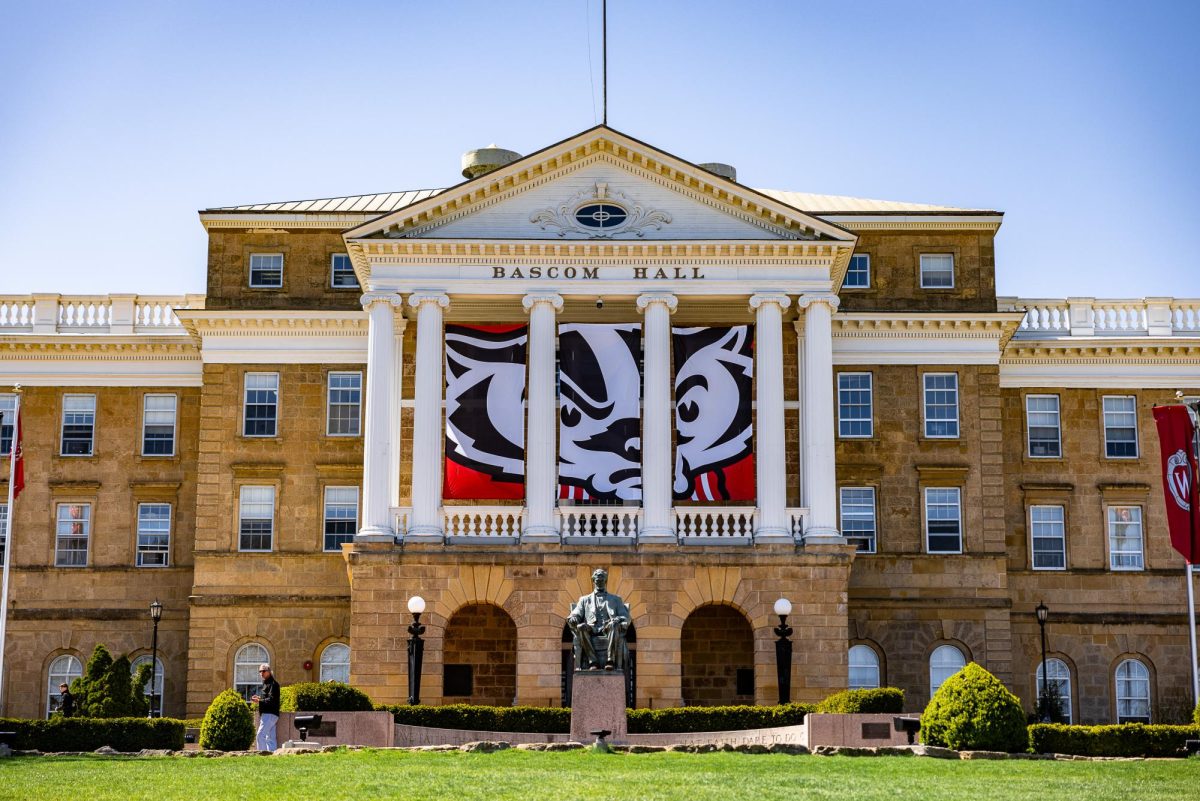Members of the public weighed in on a bill Wednesday that would make it more difficult for individuals to file complaints with the state against racially-based school mascots, a bill critics say perpetuates Native American stereotypes.
The bill would eliminate a single school district resident’s ability to file a complaint with the Department of Public Instruction for a school’s for using a race-based mascot, nickname or logo and would instead require a complainant get signatures from 10 percent of the school’s population before filing a complaint with DPI.
Arvina Martin, a member of the Ho-Chunk Nation who testified at the hearing, said the new requirement would make it harder to speak out against race-based mascots.
“There are jerks in every school district, and that threat makes it really hard to say, ‘I’m going to go up and get signatures from 10 percent of my district,’ when you could be at risk from one those jerks,” Martin said.
She said a friend from Dartmouth College, where Martin attended school from 1998 to 2002, spoke out against his high school’s use of an Indian mascot in Syracuse, N.Y. with dangerous consequences.
Martin said he told her within a week of him attending a school board meeting to complain, his house had been vandalized and his dog had been killed.
Supporter of the measure said the bill would place the burden of proving a mascot’s discrimination or offensiveness on the complainant rather than the school district.
Rep. Steve Nass, R-Whitewater, a sponsor of the bill, said the current process of allowing complainants to “go into the shadows” after the complaint is filed is unfair.
“If you file a complaint, it is only right you go through the process and show why you’re filing that complaint, instead of going into the shadows and doing absolutely nothing,” Nass said.
Sen. Neal Kedzie, R-Elkhorn, said he was of Polish descent and was often criticized for his heritage by a former boss, so it is difficult for him to understand the complaints of American Indians.
“I would love to have somebody call their high school ‘the Fighting Poles,” Kedzie added.
Martin said using such nicknames, mascots and logos may show American Indian culture in a positive light, but limits the images to common stereotypes.
As a mother, Martin said she is fearful for her fourth grade daughter’s and other American Indian children’s depiction of their culture.
“They only see medicine men, warriors and Indian princesses,” Martin said. “They don’t see themselves becoming doctors or lawyers. No one wants that for their kids.”
David O’Connor, DPI director of the American Indian Studies program, said research from the American Psychological Association suggests that using these mascots interfere with the school’s ability to teach authentic and accurate American Indian history and culture.
O’Connor added research found such images and nicknames can inflict psychological harm on American Indian children.
Shawn McNulty, Mukwonago Area School District superintendent, said Mukwonago High School, the high school in his district, emphasizes the importance of the community’s Potawatomi history.
DPI officials asked MHS to change its American Indian logo in 2010 after an individual complaint was filed but since MHS has not complied, the district now pays $1,000 a day in fines.















